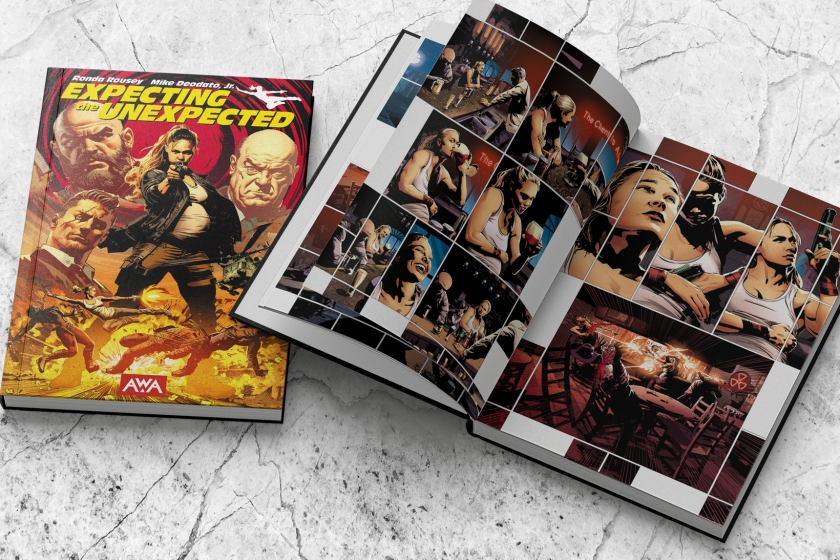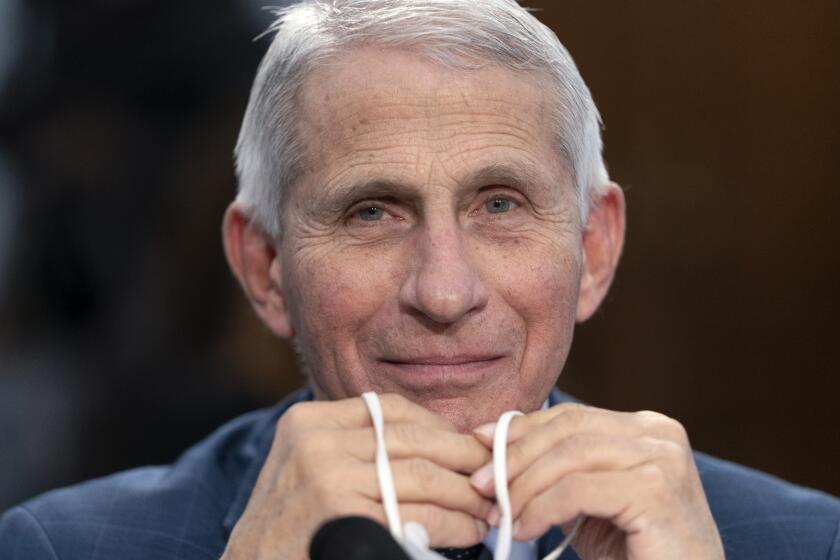TALES OF HOLLYWOOD : Producer Explains All in ‘Pound of Flesh’
What is the “psychic price” one pays for being a movie producer in this town? “A Pound of Flesh,” according to Art Linson, who has lifted the line from Shakespeare’s “Merchant of Venice” for the title of his upcoming book that also is subtitled “Perilous Tales of How to Produce Movies in Hollywood.”
“If you’re going to steal . . . Shakespeare’s a good place to steal from,” he said, qualifying the quote with a rejoinder that the rest of his biographical nonfiction tome is entirely of his own creation.
Linson, as he’ll tell you, got tired of being asked, “What do you do?” (even by his mother), despite the fact his name has been listed in large letters on the big screen as producer of “The Untouchables,” his greatest box-office success, and more recently of “This Boy’s Life.” As he sees it, no writer has yet to accurately explain a movie producer’s role--from acquiring scripts to negotiating for stars to overseeing the set. This may be because no two people working in the industry today will come up with the same job description. Linson’s answer is to paint a portrait by professional example.
In the chapter “If He Pulls Out a Knife, You Pull Out a Gun,” Linson recounts the jostling that went on between director Brian De Palma and Paramount Pictures over the budget of “The Untouchables.” Costs were quickly escalating in order to shoot on location in Chicago, meet Sean Connery’s demands for profit participation in lieu of a $2-million salary (negotiated by CAA honcho Mike Ovitz) and secure Kevin Costner for the title role of Eliot Ness over other possible choices Mel Gibson and Don Johnson.
Feeling left out of the loop, he offers this assessment from the sidelines: “If it is starting to sound like the producer at this stage is becoming a bit of a bystander, well, it’s true. The studio has the checkbook, and the director thinks he has been mandated to carry out his personal vision. No one will say this to your face, but everyone at this point hopes you are going to go off and start to plan the wrap party and design the T-shirts, jackets and hats for the crew. This is why so many producers are thought of as screamers and yellers: You have got to make noise to be heard because no one important is listening.”
If it seems as if Linson’s not trumpeting life as a Hollywood mover and shaker, it’s at least an accurate picture, he said. When he first sat down to pen his story 18 months ago, prior to signing a deal with Grove Press, his intention was to dispel the notion that “everyone is driving around in Mercedeses smoking cigars.”
“This is not a memoir, not the Art Linson era of movies. I’m just trying to be informative,” he said.
Two of the book’s chapters--the other being on the torturous process of previewing movies--were excerpted and distributed in bound form by Grove at the recent American Booksellers Assn. convention in Miami. The hardcover edition, at $16, will be published this fall.
The author intentionally eschewed taking a first-person, ponderous “How to Make It in Hollywood as a . . .” writing tone or a nasty, tell-all (if fascinating) “You’ll Never Eat Lunch in This Town Again” account either. He rather thinks of his work as a producer’s version of “Adventures in the Screen Trade,” screenwriter William Goldman’s lauded tales of writing and rewriting to suit studio executives’, stars’ and directors’ demands, which has become a must-read for film students and should-read for all other film-biz types. Linson hopes his book will become similarly influential.
“You get to go from the wonderful optimism of ‘Wouldn’t this be a great movie’ to making (the movie) to ‘Oh, my God. I’m going to be blamed for this thing,’ ” he said. “The abject terror of bombing.” Behind-the-scenes bashing has its upside too--lots of material for storytelling.
And while Linson waits months more for critical reaction to his book, he’s already on to the next movie project, “Swingtime” for Warner Bros., based on “the vicious head game of golf” as adapted from a magazine story by John Paul Newport called “Space Coast Tour” that recently ran in Men’s Journal. Linson outbid Imagine Films to option the rights to the story for $50,000. If the movie makes it to the screen, he gets an additional $125,000 producer’s fee.
As he sees it, no reason to be too cynical about the profession: “It is what I do.”
More to Read
Sign up for our Book Club newsletter
Get the latest news, events and more from the Los Angeles Times Book Club, and help us get L.A. reading and talking.
You may occasionally receive promotional content from the Los Angeles Times.






